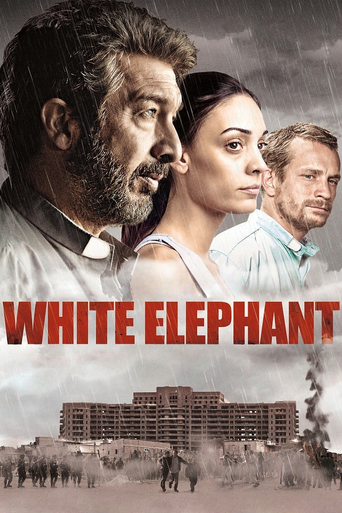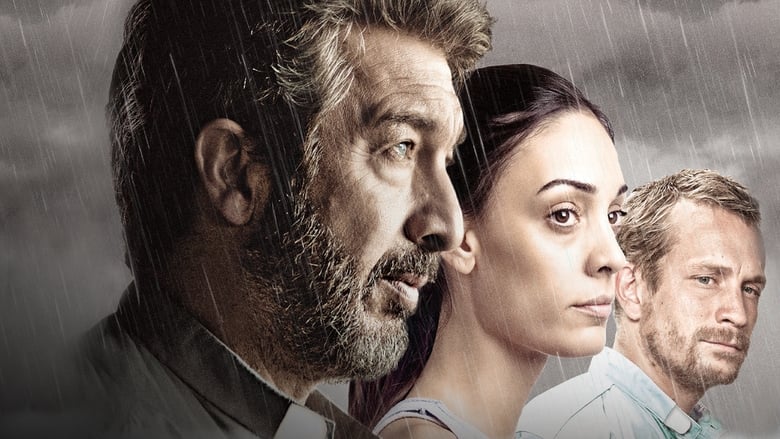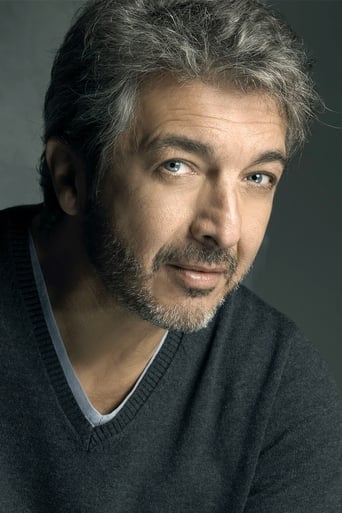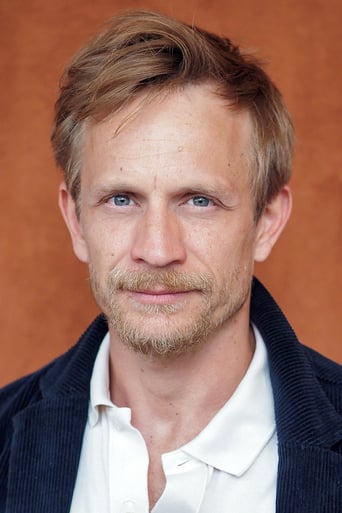

White Elephant (2013)
While working alongside his long-time friend and colleague in building a hospital for the residents of a Buenos Aries shantytown, a troubled priest finds solace in a young, atheist social worker.
Watch Trailer
Cast


Reviews
Directed by Pablo Trapero, "Elephante Blanco" is an Argentine project with a bunch of ambition but wavers in execution. Leads Jeremie Reiner, Ricardo Darin, and Martina Gusman all seem plausible and turn in satisfactory acting, but the direction and storytelling badly lacks flow. It takes nearly 20 min to understand the semblance of plot, but worse there are several plot lines of which none is really delved into with competence: championing the poor, a drug war, an illicit forbidden relationship, and internal politics of the religion. The storlines don't really mesh, and the movie suffers for it. The climax doesn't afford much connection, and the epilogue the same. The cinematography is not too inventive, and the action uninvolving. Only the relationship holds energy, and it is a distant 3rd subplot in the movie. Can't really recommend 5.5/10
There are two dominant symbols in the film that represent its major themes: the unfinished hospital that is the white elephant of the title and the murder of priests.An unfinished white building that was supposed to be a hospital and carried the ambitions of various Argentinian leaders to be the best hospital on the continent, has become the centre of a Buenos Aires slum. Surrounding the building are more make shift dwellings that house people and the community's chapel. On public land outside, building has begun on a project to provide new permanent homes for the slum dwellers, a community centre and, at the centre, a new church. This building is soon abandoned by the development company after its employees' wages fail to materialise. Who is responsible for paying the wages is not established amidst the bureaucracy. The community's anger when the work ceases boils over into a violent confrontation with the police that ends in fatality.A 'white elephant' is an expression for the evident presence of something ignored or not spoken about. As a symbol it is prevalent throughout the film and is a leitmotif. Other white elephants include the wealth of the Catholic church contrasted with its parishioners; the question of why a priest, as a representative of faith, cannot marry or have sexual relations yet can preach on these matters; the summary justice visited on the slum dwellers by authorities that mirrors the criminal behaviours they are there to prevent; and, the biggest white elephant of them all, why don't the elected leaders act? Why are the slum dwellers left poor? If they can make homes from nothing then why can't homes be made for them?The incomplete hospital represents the shifting and unsettled politics of Argentina with investment being provided and then withdrawn as the country's elected leaders changed. Thus the film can be viewed as a comment on the turbulent political sands of South America and the divide between wealthy and poor as much as on Argentina and Buenos Aires.The other symbol of the film is Father Carlos Mugica, a real life figure who, like the character of Father Julian (Ricardo Darin), hailed from an affluent background and devoted his religious life to the poor. Mugica was assassinated for his efforts by an anticommunist political group and this serves as a reminder of the high price leaders of the poor and disenfranchised can pay when society's paymasters feel threatened.The film opens in another South American country, Peru, where another poor community are being massacred as the authorities hunt for their priest, Father Nicolas (Jeremie Renier), who manages to elude capture. We do not learn what Fr Nicolas has done to invite such wrath but given what we see of Fr Nicolas later he was probably campaigning in an active way for his parishioners betterment, which was at odds with the authorities' wishes. During his convalescence he is visited by his colleague and confessor Father Julian who persuades him to return with him to Buenos Aires and help with the work the church are engaged in at the slum. Fr Nicolas's introduction to the reality of slum life hits him on his first night when the quiet is interrupted by gun fire and a pounding song on the soundtrack underlines how busy and noisy will be his new environment.The film's strength is its depiction and evocation of slum life. The director, Pablo Trapero, filmed in an actual Buenos Aires slum and many of the minor players and extras were from the local population. In spite of the poverty and crime the slum is shot in a way that shows its quirky beauty, the care of the people for their environment and its vitality.Contrasted to the pulsating slum life are the sterile and hierarchical meetings held by the church leaders with Fr Julian. One of the film's debates, explored via Fr Julian and Nicolas, is the issue of faith and its relationship, if any, with sinful behaviour. Remote and privileged, the religious leaders follow an orthodoxy that cannot adapt to the challenges faced by their priests in the slum and in this they fail their priests who are left to their own devices amidst the ensuing chaos. The actions of Fr Julian and Nicolas might be viewed as sinful but it seems equally sinful not to act, as is the decision made by the church leaders.One major criticism of the film is that its desire to be faithful to slum life makes the film very busy and more like a series of vignettes than a story following one or two characters. Indeed the main characters become symbols themselves rather than fleshed out people. On my first viewing I was left dissatisfied with the film as a result. A second viewing helped greatly as I was no longer concerned with plot and could focus instead on the themes and how characters and events contributed to them. Overall I think the film is a good one with strong acting, superb sense of place and time and a cracking soundtrack that contrasts popular music with orchestral pieces composed by Michael Nyman that are like dirges contributing to a prevailing sadness. Throughout the film mourns, without sentimentality, the plight of the slum dwellers and the losses in their lives and of those who try to help, as well as the loss of individual aspirations and hopes.Someone has described Trapero's films as muscular and that is a good way to view this film. It is strong and dynamic and encourages one to think about it and what is being portrayed.
Very good movie excellently performed by Argentina big star , Ricardo Darin . This Cannes selected film contains a fascinating , brooding story , perfectly acted and concerning the narration about the construction a hospital of riveting manner . The "Villa Virgin", a shantytown in the barrios of Buenos Aires. Julian (Ricardo Darin) and Nicolas (the French Jeremie Renier) , two priests and long-standing friends, work tirelessly to help the local people. Julian uses his political connections to oversee the building of a hospital. Nicolas unites him following the flop of a mission he was leading in the jungle , after paramilitary forces assassinated members of the community. Deeply troubled, he finds a little comfort in Luciana (Martina Gusman), an enticing social worker . As Nicolas' faith weakens, tension and violence between the barrio drug dealing cartels grow. And when work on the hospital is halted by ministerial decree , the fuse is lit...This is a co-production Argentina/Spain/France , being well paced , skillfully edited and very interesting . The picture is plenty of thrills , intense drama , a love story , violence and thought-provoking issues . After splendid collaboration between Pablo Trapero and Ricardo Darin in a thriller titled ¨Carancho¨ , this relationship worked out so well that they're doing it again . Trapero's Elefante Blanco seems like a very likely candidate to turn up in becoming quite simply one of the best films of its year . The insightful storyline relies heavily on the continued relationship among three protagonists but it isn't tiring ; being entertained and with numerous diverting moments and agreeable feeling . Darin and Jeremie Renier star as priests coping in very different ways with the violence and corruption in the Buenos Aires slum of Villa Virgen where they work , both of them carry out excellent performances along with Martina Gusman playing as an atheist social worker . However , Ricardo Darin steals the show as the obstinate priest , Darin is a magnificent leading figure of the most important Argentinian movies such as ¨El Aura¨, "El Faro" (1998), "El Mismo Amor La Misma Lluvia" (1999), "Nueve Reinas" (2000), "La Fuga" (2001) and especially ¨El Hijo de la Novia¨ . Evocative production design filmed on location in barrios and slums from Buenos Aires , Capital Federal and Plaza Guemes . Emotive as well as sensitive musical score by the British Michael Nyman . Colorful and adequate cinematography by cameraman Guillermo Nieto . The motion picture well produced by Alejandro Cacetta and Juan Vera , was compellingly directed by Pablo Trapero . Trapero is a good filmmaker , his best film was ¨Carancho¨, dealing with a slow burning exercise in moral decay and his usual actress results to be Martina Gosman who has worked in various film with him , such as : ¨Lion's den¨ , ¨Nacido y Criado¨ , ¨Carancho¨ and of course this ¨Elefante Blanco¨ . This dramatic flick is an above average film and Argentina's official submission to the Cannes Film Festival and achieved several Awards of the Argentinean Academy. Indispensable and essential seeing for Ricardo Darin fans .
Set in present day Buenos Aires, a middle-aged catholic priest (Ricardo Darin) who is working on a housing project in a real-life slum brings a french priest friend (Jérémie Renier) to work with him. In my opinion, the movie's strength is not so much the plot but the realistic portrayal of the crude slum life-style, codes, culture and hardships. My office is 4 blocks away from that slum, it is quite a contrast between a slick cosmopolitan, corporate world and a poverty-stricken area where violent crime thrives. I can tell you the director achieved great accuracy in the portrayal of the slum environment, without conveying a condescending feel, but a dignified one. Worth a watch.




